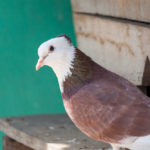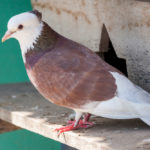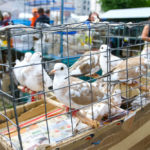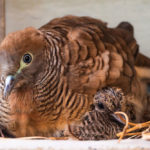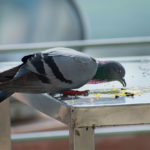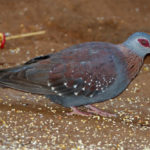Cats and dogs are of course a popular choice of pet when it comes to rescuing an animal from a shelter.
However, not many people realize that there are also loads of birds housed in shelters, too, who also need to find a loving home.
Domestic pigeons can’t be released back into the wild. This is because they have been selectively bred, tamed, and lack the survival skills they need to survive on their own.
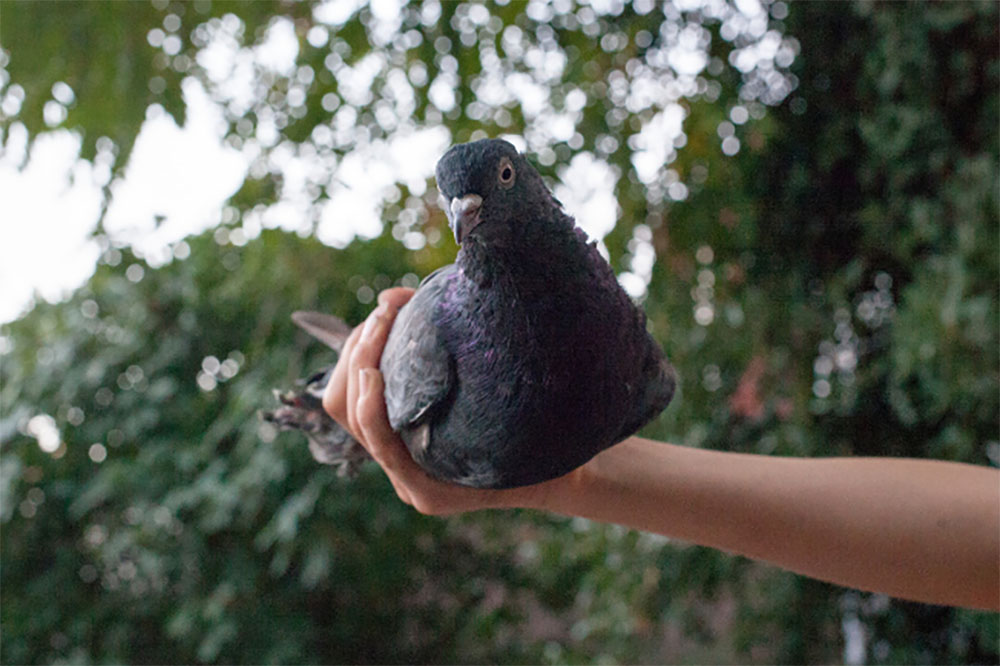
Domesticated pigeons that don’t find a home are often killed in shelters, simply because there isn’t enough room for them.
So today we’re going to cover why pigeons make fantastic pets, and why you should consider choosing one of these adorable birds as your next companion.
Why You Should Choose A Pigeon As A Pet
There are lots of different breeds of domesticated pigeons. Breeds such as Fantails, Kings, Homers, and Tumblers are highly intelligent birds with gentle natures.
These birds make fantastic pets, and are also much quieter than other types of birds such as parrots or macaws.
When kept as pets, pigeons can live for as many as 15 years! They also tend to have mild and calm dispositions, making them easy to manage.
As we’ve already mentioned above, domesticated pigeons can’t be released back into the wild because they lack the survival skills necessary to do so. They do, however, flourish as pets.
What’s really great about keeping pigeons is that they are suitable to be kept as pets both indoors and outdoors.
All you will need to do is ensure that they have a suitable cage or aviary in place to keep them protected.
If you’re thinking about adopting a pigeon as a pet, we’re going to cover what you need to think about when keeping them as pets both outside and inside.
Keeping Pigeons In An Aviary Outside
Firstly, it is worth noting the importance of choosing an appropriate aviary for your birds. This is because they can’t be flown safely outdoors, because they make easy prey for cats and birds of prey.
So, you will need to house them in a rodent proof aviary if you choose to keep them outside.
Your aviary will need to keep your pigeons protected both from rodents as well as other predators.
This will mean choosing an aviary that is built using durable, sturdy materials, and will keep your birds protected both around the sides as well as from the base and roof.
To keep the aviary rodent proof, we’d suggest opting for a hardware mesh that is 16 gauge or even better. The openings of the mesh should only measure a half inch or even smaller.
In terms of size, the larger your aviary, the better. This will give your birds more room to fly around as they need to.
If you have four pigeons to home, then the absolute smallest sized aviary you should opt for should measure 6 feet in length by 4 feet in depth and 6 feet in height.
It will also be best to ensure that they have a sheltered corner which can keep them dry during downpours, and also protected from the heat during sunnier days.
You will need to supply your new pigeons with fresh water and food each day, as well as scrape away any feces they deposit so as to prevent unwanted disease.
You will also need to clean out the aviary once a week to ensure that they have a healthy, hygienic space to inhabit.
If you have any mated couples, you may need to swap their eggs out for fake eggs. This is to prevent any unwanted baby pigeons from overrunning your aviary.
Pigeons will tend to lay eggs every five to four weeks, so make sure to keep an eye out for these. You can swap the real eggs out for wooden eggs, which will work as a pigeon birth control.
You’ll notice that your pigeons enjoy a variety of activities once you have them in your aviary.
They can be spotted relaxing in the sun, preening, having a quick nap, courting one another, looking for seeds, bathing, as well as many other activities that they find exciting.
It will be fairly straightforward to create an environment that they will enjoy.
Keeping Pigeons In A Cage Inside
Don’t have the space outdoors to keep pigeons in an aviary?
Not to worry, you can also keep them in an appropriate cage in the comfort of your own home!
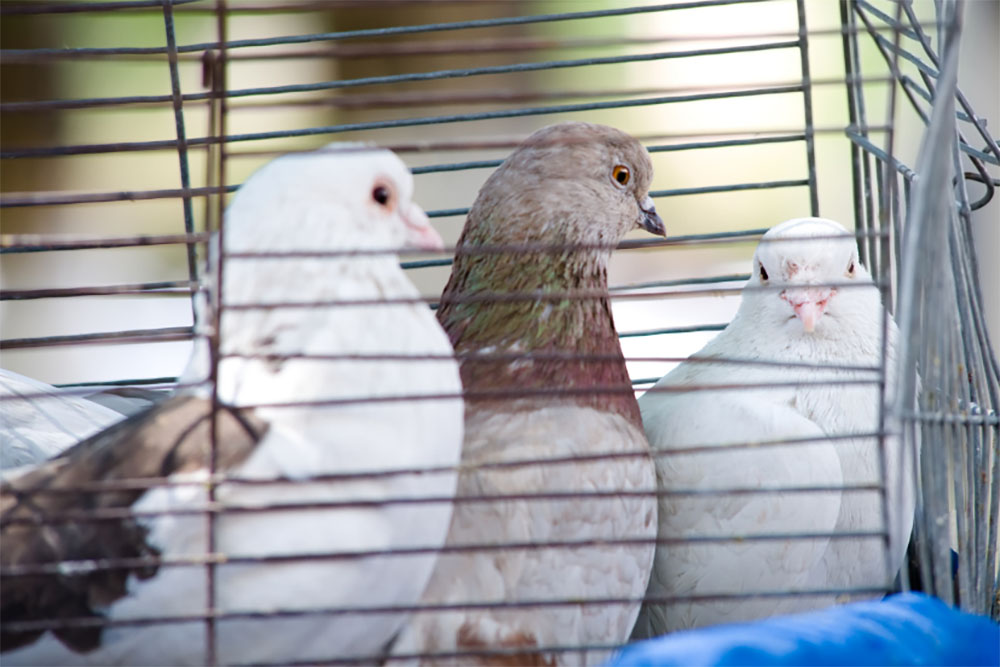
This will allow your beloved pets to truly become members of the family. This can also be a great way to get your kids involved with helping to look after the family pigeons.
Your pigeons will need a large cage for them to stay in. You can opt for an extra large dog kennel, or even a double flight cage.
This should be more than enough room for a pair of birds.
Pigeons are social animals that will need a companion, so you should keep at least two in your home rather than a single bird.
The maintenance will be virtually the same for your indoor birds.
The only difference is that these pigeons will need some daily time out of the cage so that they can stretch their wings and legs.
They will be perfectly safe to let out of their cage for some supervised flying time, and won’t be scared of any cats or dogs as long as you’re around to keep them protected.
Why You Should Use Pigeon Pants For Your Indoor Pigeons
The only thing to think about when keeping pigeons indoors is their droppings. This can be an inconvenience for some.
While it won’t be difficult to manage pigeon feces if you have hardwood floors in your home, and odorless pigeon poop is healthy and won’t harbor disease, this may be your main concern about keeping pigeons indoors.
What’s really great about pigeons who are kept as pets is that they can be potty trained. You can also purchase pigeon pants for your bird to catch any droppings.
This is basically a harness that can be fitted to your bird, which features a diaper.
They are super easy to put on your bird, and your pigeon will tolerate this fairly well.
Once your pigeon has their pigeon pants in place, they will be able to comfortably fly and walk around your home.
They can also sit on your lap or your shoulder without you worrying that they might drop any feces on you.
It will be important to remember to change the diaper every 3 hours or so, so that your pigeon can stay clean and happy.
In Summary
And there you have it! Pigeons make great pets, and will be loving, rewarding companions to have as part of your family. They are easy to care for, and you can keep them both indoors or outdoors.
The only thing to consider is the type of enclosure you would prefer them to live in. They will need a large, predator safe aviary if they are kept outside.
You can also keep them indoors in an extra large dog kennel, where they will need daily supervised cage free time so that they can stretch their wings.

